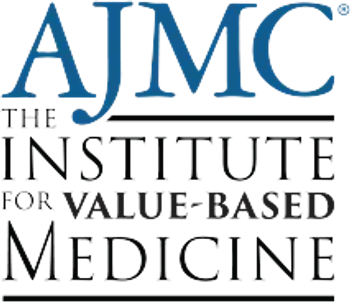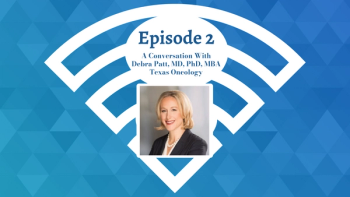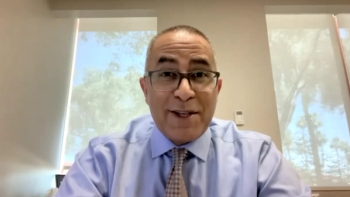
Even after adjustments, the underlying trends in disparities persisted, underscoring the significance of survival disparities among second primary cancer survivors.

What We’re Reading: Wegovy Supply Limits Extended; Veterans Encounter PACT Act Claims Error; Missing Out on Preventive Services

Even after adjustments, the underlying trends in disparities persisted, underscoring the significance of survival disparities among second primary cancer survivors.

The researchers conducted this study as previous ones have not assessed death rate variations among patients with chronic obstructive pulmonary disease (COPD) across the urban-rural gradient.

On this episode of Managed Care Cast, Kathy Leyden, vice president of community engagement at Capital District Physicians' Health Plan (CDPHP), discusses key initiatives and areas of focus to address hunger and food insecurity issues across Upstate New York.

The Red Cross’s inclusive assessment will determine blood donation eligibility; Wegovy reduces the risk of cardiovascular events; the first postpartum depression pill sparks pricing questions.

Among 2.5 million adults with opioid use disorder (OUD), only 36% received any substance use treatment, and only 22% received medications for OUD in a recent study.

Outcomes for these patients following bystander CPR were compared with those among White patients.

Women may be at a higher disadvantage than men with adult status epilepticus, according to one study.

Coverage from the July 25, 2023, Institute for Value-Based Medicine® session held in partnerhship with Emory's Winship Cancer Institute.

Coverage from the Institute for Value-Based Medicine event in Atlanta, held in partnership with Winship Cancer Institute of Emory University.

A recent study suggests that a lack of equitable access to care contributes to known disparities in outcomes between Black and White patients with advanced prostate cancer.

Significant differences in video telehealth use were observed in rural and urban populations, especially among American Indian/Alaska Native veterans, a new study has found.

A new analysis from the American Heart Association found present-day heart failure risk was higher among Black adults who lived in areas historically impacted by redlining.

The US Labor Department initiated a lawsuit against a UnitedHealth Group unit after it allegedly denied thousands of claims without assessing their merit; the cost of lecanemab, the first drug that claims to slow the advance of Alzheimer disease, will mostly fall upon taxpayers; nearly 7 million women in the US live in maternity care deserts with little to no access to maternal care.

Debra Patt, MD, PhD, MBA, joins hosts Emeline Aviki, MD, MBA, and Stephen Schleicher, MD, MBA, for episode 2 of our newest podcast, "Oncology Onward: Conversations With Innovators and Changemakers in Cancer Care."

Some populations face longer diagnostic delays for hidradenitis suppurativa (HS), but medical education can help improve knowledge of common dermatologic diseases and reduce delays in diagnosis, said Haley Naik, MD, FAAD, associate professor of dermatology, University of California, San Francisco, School of Medicine.

After the COVID-19 vaccine was released, disparities in COVID-19 incidence shrunk. However, although efforts were made to increase access to the COVID-19 vaccine in low-income areas, discrepancies in overall vaccination coverage persisted between higher- and lower-income communities.

Racial minority patients and low socioeconomic status patients tended to face the most barriers.

Highly resourced accountable care organizations (ACOs) were more likely to offer digital health services.

A class-action lawsuit was filed against Cigna for allegedly wrongfully rejecting thousands of claims using an algorithm; Black women still have a fetal mortality rate double the national average despite declining from that of recent years; the CDC is investigating the source of ground beef causing a multistate salmonella outbreak.

The shrinking gap was mainly driven by mobile device use.

Some of the many barriers patients with hidradenitis suppurativa (HS) face include accessing knowledgeable providers, insurance coverage of treatment, and the way the health care system is set up, said Haley Naik, MD, FAAD, associate professor of dermatology, University of California, San Francisco, School of Medicine.

Joseph Mikhael, MD, MEd, FRCPC, FACP, chief medical officer of the International Myeloma Foundation, discussed the manufacturing challenges sometimes seen with chimeric antigen receptor (CAR) T-cell therapies and strategies being implemented to improve access for historically underserved patients.

Judite Blanc, PhD, is lead author on the abstract, “Social Determinants of Sleep Disorders Among Multiethnic Americans in the NIH All of Us Research Program,” which was presented on June 5th at the SLEEP 2023 conference.

Insurers supervising the health care of Medicaid patients repeatedly reject providers’ approval of care; individuals are more likely to develop dementia if they live in disadvantaged neighborhoods; a type of an immunity gene is found in people who test positive for COVID-19 but don’t develop symptoms.

Residence in a more disadvantaged neighborhood was associated with higher likelihood of being a high-cost utilizer among older adults and lower likelihood among younger adults.

259 Prospect Plains Rd, Bldg H
Cranbury, NJ 08512
© 2025 MJH Life Sciences®
All rights reserved.
